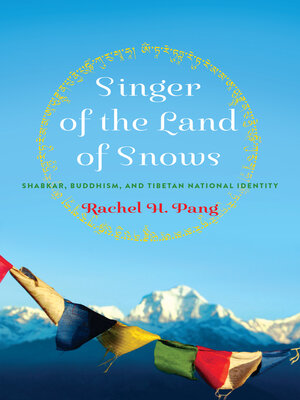Singer of the Land of Snows
ebook ∣ Shabkar, Buddhism, and Tibetan National Identity · Traditions and Transformations in Tibetan Buddhism
By Rachel H. Pang

Sign up to save your library
With an OverDrive account, you can save your favorite libraries for at-a-glance information about availability. Find out more about OverDrive accounts.
Find this title in Libby, the library reading app by OverDrive.



Search for a digital library with this title
Title found at these libraries:
| Library Name | Distance |
|---|---|
| Loading... |
The singular role of Shabkar in the development of the idea of Tibet
Shabkar (1781–1851), the "Singer of the Land of Snows," was a renowned yogi and poet who, through his autobiography and songs, developed a vision of Tibet as a Buddhist "imagined community." By incorporating vernacular literature, providing a narrative mapping of the Tibetan plateau, reviving and adapting the legend of Tibetans as Avalokiteśvara's chosen people, and promoting shared Buddhist values and practices, Shabkar's concept of Tibet opened up the discursive space for the articulation of modern forms of Tibetan nationalism.
Employing analytical lenses of cultural nationalism and literary studies, Rachel Pang explores the indigenous epistemologies of identity, community, and territory that predate contemporary state-centric definitions of nation and nationalism in Tibet and provides the definitive treatment of this foundational figure.
Shabkar (1781–1851), the "Singer of the Land of Snows," was a renowned yogi and poet who, through his autobiography and songs, developed a vision of Tibet as a Buddhist "imagined community." By incorporating vernacular literature, providing a narrative mapping of the Tibetan plateau, reviving and adapting the legend of Tibetans as Avalokiteśvara's chosen people, and promoting shared Buddhist values and practices, Shabkar's concept of Tibet opened up the discursive space for the articulation of modern forms of Tibetan nationalism.
Employing analytical lenses of cultural nationalism and literary studies, Rachel Pang explores the indigenous epistemologies of identity, community, and territory that predate contemporary state-centric definitions of nation and nationalism in Tibet and provides the definitive treatment of this foundational figure.







